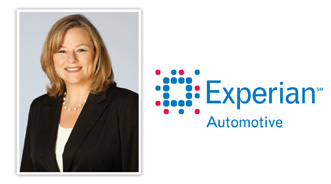Experian: Q3 Delinquency, Repossession Rates Tick Lower

By subscribing, you agree to receive communications from Auto Remarketing and our partners in accordance with our Privacy Policy. We may share your information with select partners and sponsors who may contact you about their products and services. You may unsubscribe at any time.
SCHAUMBURG, Ill. –
Third-quarter delinquencies and repossession rates moved in directions Experian Automotive didn’t expect. They all moved lower year-over-year.
According to Experian Automotive’s Q3 State of the Automotive Finance Market Analysis, 30-day delinquencies fell to 2.67 percent from 2.78 percent in the year-ago quarter. The development marked the second consecutive year that third quarter 30-day delinquencies stayed below the prerecession level of 2.81 percent from Q3 of 2007.
Meanwhile, 60-day delinquencies also ticked lower during the third quarter, dipping to 0.69 percent from 0.71 percent a year earlier. Like in the other delinquency category, the reading represented the second consecutive year that third quarter 60-day delinquencies settled below the prerecession level of 0.74 percent from Q3 of 2007.
Moving on to quarterly repossession rates, the overall level slid to 0.40 percent in the third quarter from 0.62 percent in the year-ago period.
Experian found quarterly repossession rates for banks, credit unions, captives and finance companies all fell with finance companies showing the sharpest decline, dropping from 2.36 percent in third quarter of last year to 1.18 percent.
The only recovery department reading that registered an uptick in Experian report was overall charge-off amounts. The figure rose to $7,026 in the third quarter, up from $6,820 a year earlier.
Subscribe to Auto Remarketing to stay informed and stay ahead.
By subscribing, you agree to receive communications from Auto Remarketing and our partners in accordance with our Privacy Policy. We may share your information with select partners and sponsors who may contact you about their products and services. You may unsubscribe at any time.
After reviewing all of the data, Melinda Zabritski, director of automotive credit at Experian Automotive, said, “I will admit that I was pleasantly surprised as I was anticipating on seeing delinquencies begin to increase for Q3. I wasn’t thinking it was going to be much but I was expecting it to creep up a little. And we certainly didn’t see that. We continue to see very strong payment behavior for consumers with auto loans.”
When asked to pinpoint why, Zabritski told Auto Remarketing there are numerous factors helping to push better performance of auto loans.
“You certainly have strong underwriting procedures, but also I think we certainly have a healthier economy right now and consumers are benefiting from that,” she said.
“It’s interesting because if you go back and look at pre-recession data we had a lot of financing in subprime, nearly comparable to what we’re doing right now in subprime. Yet back then, we certainly had higher delinquency rates than we do today,” Zabritski continued.
“(Strong payment performance) could be attributed to numerous things,” she went on to say. “It could be contract strategies. It could also be payment changes by consumers paying their automotive loans ahead of other payment priorities.”


